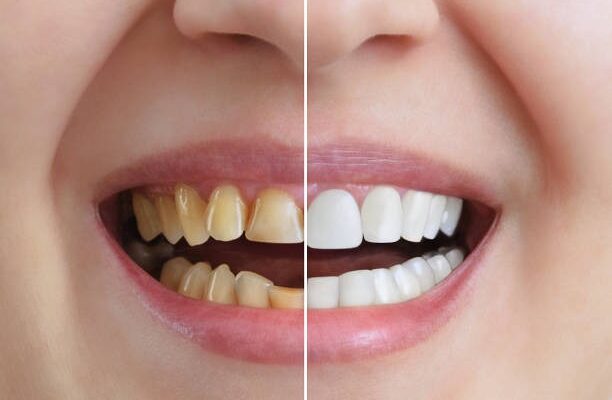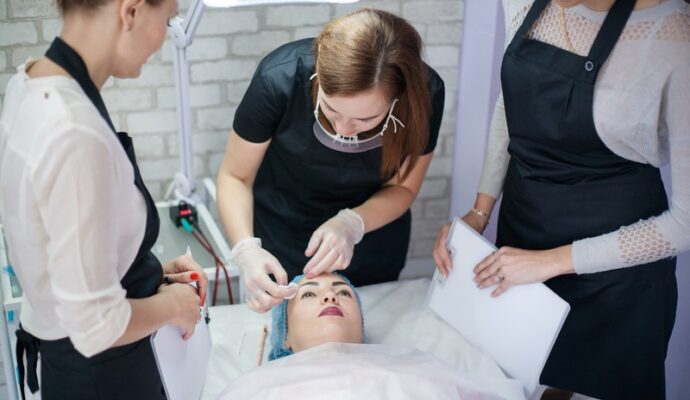Navigating the recovery process after dental surgery can feel challenging, but with the right information and care strategies, it’s manageable. From tooth extractions to dental implants, the post-surgery period is crucial to ensure healing and prevent complications. This guide offers practical and empathetic advice on caring for oneself after dental procedures. Here’s what to keep in mind so you can feel more comfortable and confident throughout your recovery journey.
Effective Post-Surgery Care Tips
Facing recovery after dental surgery can be daunting, but knowing the steps to take can ease the process. Proper care significantly hastens healing and mitigates risks of complication. Here’s a straightforward guide on what to do after your procedure to promote recovery.
Managing Pain and Swelling
Pain management is essential after surgery. Medications prescribed by your dentist should be taken as directed and may help alleviate discomfort. Ice packs applied gently to the affected area near the surgery site can reduce swelling and soothe pain. Keeping the head elevated while resting further minimizes swelling and relieves discomfort.
Oral Hygiene and Healing
Maintaining oral hygiene is key, yet care is needed around the surgical site. Avoid brushing the area on the first day. Use a soft toothbrush and rinse gently with a saltwater solution thereafter. Flossing remains important but proceed carefully near the surgery site. It’s best to steer clear of commercial mouthwashes during this time, as they might irritate delicate tissues.
Diet and Hydration
A soft food diet aids recovery. Foods such as yogurt, applesauce, and mashed potatoes are gentle on the surgical area. Avoid hot, spicy, or crunchy foods to prevent irritation. Gradually reintroduce solids as healing progresses. Stay hydrated, but avoid using straws since the suction can dislodge healing clots. Water is preferred to avoid complications associated with beverages that contain caffeine or alcohol.
Rest and Activity Considerations
Ample rest is essential for healing. Avoid strenuous activities, as they may cause increased bleeding or swelling. Listen to your body, allowing adequate time for rest before gradually resuming regular activities. Overexertion can slow down recovery and should be avoided initially. Resist the temptation to jump back into a normal routine too quickly.
Recognizing Potential Complications
Awareness of potential complications leads to prompt action and peace of mind. Watch for symptoms like excessive bleeding, severe pain, or signs of infection like fever or unusual swelling. If any of these or other concerns arise, contact dental professionals immediately. Quick responses in such situations ensure a smoother and problem-free recovery. Follow-up appointments with your dentist can assess healing progress and guide necessary adjustments.
For those considering future oral improvements, seeking guidance from a qualified cosmetic dentistry expert can offer insights tailored to one’s needs. They help explore options beyond fundamental care, focusing on enhancing both dental health and aesthetics.
Emotional Considerations During Recovery
The recovery phase can be emotionally taxing as well. Feelings of anxiety are not uncommon. It’s beneficial to communicate with friends, family, or professionals about one’s feelings. Engaging in light activities like reading or listening to music can provide comfort. Addressing emotional aspects aids overall recovery, fostering a positive outlook during the healing period.
Important Restrictions and Precautions
-
Avoid smoking, as it increases the risk of complications.
-
Steer clear of hard, sticky, or crunchy foods that may harm the surgical site.
-
Do not consume alcohol, especially if on medication.
-
Avoid heavy physical activities during initial recovery days.
-
Resist the urge to touch or disturb the surgery area with fingers or tongue.
Nutrition’s Role in Recovery
A balanced diet assists in a quicker recovery. Foods rich in Vitamin C and Zinc support healing functions. Fruits, vegetables, and lean proteins offer essential nutrients beneficial for recovery. Monitoring how different foods affect the healing process is wise, adjusting intake to minimize discomfort and support nutrition. For those recovering from dental procedures, such as implants, consulting an implant dentist can provide additional guidance on dietary choices that promote optimal healing. Understanding these options ensures informed decisions that align with personal dental health goals and overall recovery strategies.
Supporting Recovery with Personal Assistance
Recovery is more manageable with support. Assistance from family or friends can be invaluable, from reminders to take medication to help with daily chores. A dedicated person might accompany one to follow-up visits, providing an extra layer of comfort. Simple acts of support contribute significantly to emotional and physical healing.
For residents in certain areas, like seeking assistance from a nearby dentist in Colorado Springs can be especially helpful. Their expertise combined with an understanding of local needs provides tailored care, ensuring effective and smooth recovery pathways.
Closing Remarks
Post-dental surgery recovery needn’t be overwhelming. With careful adherence to recommended care practices and awareness of potential concerns, a smooth and successful healing process is possible. Knowing when to reach out for professional help ensures peace of mind. By integrating these guidelines into everyday care, recovery becomes more straightforward and efficient. Embrace this time to heal and anticipate positive outcomes as the body utilizes these supportive measures.




